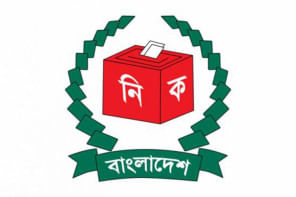“Dream weavers unite”
SPEAKING at London's Science Museum recently, physicist Stephen Hawking said: "The human failing I would most like to correct is aggression. It may have had survival advantage in caveman days, to get more food, territory or a partner with whom to reproduce, but now it threatens to destroy us all." The scientist, who was hosting a museum tour for the winner of London's official guest of honour contest, also asserted that the human quality he would like to magnify most is empathy. "It brings us together in a peaceful loving state."
Interestingly, Hawking, a world-renowned cosmologist, did not predict an astral disaster as the likely cause of the human race's extinction! Rather, he singled out aggressive and selfish behaviour as the gravest threat we face. While this may not be a fresh revelation to many, I believe it is worth reflecting on. The idea becomes especially relevant in the backdrop of last week's brutal murder of author, blogger and progressive thinker Avijit Roy, by a religious extremist group near Dhaka University's bustling Teacher Student Center. Since much has been discussed and written about the new wave of religious fanaticism and the culture of intolerance that are creating deep fissures in Bangladeshi society, I would like to focus on the human and social dimensions of Avijit's ruthless killing.
As a matter of fact, it's an eerie coincidence that I happened to be in the same spot as the killing the night before the tragic incident. While confidently walking back to my car after a singing performance in the nearby Bangla Academy, I was encouraged to see the enthusiastic crowds enjoying the annual book fair festival held in the Academy premises. Not once did the thought cross my mind that my safety was in jeopardy. On the contrary I found comfort in the chatter and laughter around me. Hence, the question puzzling me is: "Were my instincts totally wrong?" If not, how did a seemingly safe haven turn into a site for a brutal assassination? More importantly, why did the crowd not intercede when Avijit and his wife Bonya were being assaulted? There was a time when protecting a human life was considered to be a noble act, admired and celebrated by society. But today the common reaction seems to be: "I don't want to get involved -- lest I am victimised too." What has caused this seismic shift in values? Is it only fear of recrimination and backlash? Or is it much more?
Perhaps the overall bankruptcy of compassion, trust and empathy is an extension of the country's deeply flawed and polarised social and political system. The State's use of extrajudicial methods to maintain its monopoly of power and the opposition's tactics of spreading terror and insecurity have exposed the masses to enormous injustices, violation of human rights, crumbling social cohesiveness and fractured personal relationships. The shocking indifference of the crowd and the abdication of responsibility by the police, who watched Avijit and Bonya being hacked by machetes and cleavers, are indicative of a fragmented and broken society where widespread cynicism has become the modus operandi. People seem to accept crisis without weighing the implications, even cost to human life. They are no longer concerned about how to address and rectify injustices, only how to side step or survive them.
I am in no way justifying the callous behaviour of the people and the police who watched Avijit's murder as if it were a spectacle. But I do believe that their insensitivity is indicative of how despair merges with the notion of a future that is no longer worth fighting for. A kind of psychic numbing coupled with a total disregard for the suffering of others. A helpless resignation in which self-preservation is the only interest that matters.
Going back to Stephen Hawking's observation about the destructive nature of aggression and the salutary affect of empathy, one may ask: is it possible to trigger a positive change in Bangladesh's social behaviour and attitudes? Especially given the current context of lawlessness, public disenchantment with political leaders and low level of civic engagement? Or have things moved so far that the process is irreversible? Cynics tell us that only heroes who dwell in myths and novels can reform a society that has been festering deep wounds for long. At times I am inclined to believe them because I, too, become a hostage to hopelessness.
But then … I bounce back and make a conscious decision to hold up my flickering candle for those who are fighting for freedom of speech, freedom to practice the religion of their choice, freedom to walk the streets without being beaten, stabbed or gunned down. People like me may not be heroes but we have the potential to nurture and spread the dreams of the "Avijits." And everything is possible when "dream weavers" unite!
The writer is a renowned Rabindra Sangeet exponent and a former employee of the World Bank.
E-mail: [email protected]

 For all latest news, follow The Daily Star's Google News channel.
For all latest news, follow The Daily Star's Google News channel. 



Comments